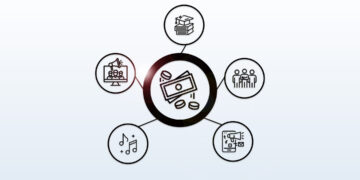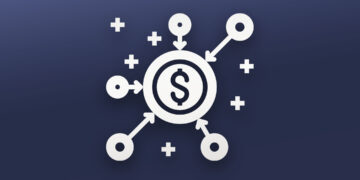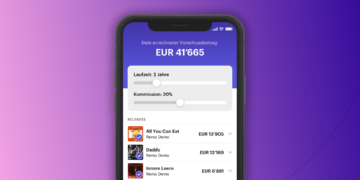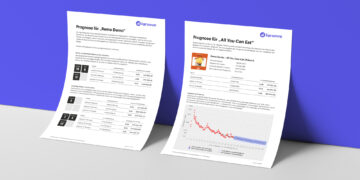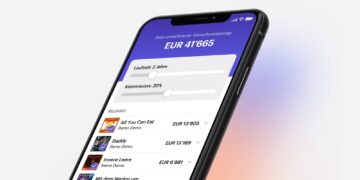Advances: Opportunities and risks

- The most common concerns about advances
- The fact check on these concerns
- How the advances work at iGroove
Advances always cause heated discussion. While for some musicians it’s the declared goal to get the highest possible advance, for others it’s nothing but a rip-off. We have collected some of the frequent statements and show you the chances and risks. One thing is for sure: an advance is not a gift. You simply receive the money you would earn in the future already now.
Advances drive artists to financial ruin
It’s standard that advances are non-refundable. This means that the artists are not liable with their private assets and the label / distributor bears the economic risk. Advances that must be repaid under all circumstances are not recommended.
With iGroove, the advance only has to be recouped with the contractually defined releases. If the amount is not recouped after the agreed term, it’s extended. The artists are never liable with the private assets.
Advances are just the same as a loan / credit
Despite some parallels, there are also substantial differences. This is primarily that a credit / loan must be repaid in any case. The risk therefore lies with the borrower. In addition, you pay a fixed interest rate each month, while this varies with the advance depending on how the releases perform in the respective month.
Advance contracts are non-transparent and artists are being ripped off
This happens without a doubt. We therefore recommend that you seek advice from a specialist, such as a music lawyer.
iGroove focuses on full transparency and easy-to-understand contracts. You can determine the term and conditions yourself and see the costs listed in detail. In addition, you can always see how much has already been recouped.
I’m dictated what I use my advance for
Generally there are two types of advances:
Production cost advances: As the name suggests, this is used to pay for the production of the release and is therefore earmarked.
Advances on license payments: In the vast majority of cases, these are not earmarked.
Advances from iGroove are not earmarked and can be used for any purpose.
With an advance I also give away income from concerts, merch etc.
In fact, so-called cross-collateralizing is increasingly becoming the standard. This means that you have to recoup the advance not only with a release, but also with income from publishing rights, concert fees or merchandise. It’s advisable to consult a specialist when negotiating the contract.
There is no cross-collateralizing with iGroove. The advance must only be recouped with the contractually agreed releases.
The fees are insane – I have to pay back more than I receive
An advance is only ever recouped with the artist’s share of the revenue. For example, if you have a 50:50 deal with a label and receive a 10,000 advance, your release must generate 20,000 until the advance is recouped. This covers the label’s risk in the event that the advance is not recouped.
iGroove’s share is between 14-18%. If you choose a 15% deal and receive 10,000, your advance is recouped once the release has raised 11,500.
Advances tie me to a label / distributor for the long term
This is a matter of negotiation. Often contracts go over several releases and the labels can redeem a so-called option. This can have a direct influence on the amount of the advance for your next release through the minimum or maximum fund: for example, if an advance was recouped, the maximum fund comes into play for the next release, if not the minimum.
At iGroove, each advance is calculated from scratch by our artificial intelligence.
If I don’t recoupe, I have to deliver more releases
If an advance is not recouped, it often has to be recouped with the next release. For example, if you received 20,000 but only recouped 10,000 and you receive 10,000 advance for the next release, you must recoup 20,000 again.
The problem with such long-term contracts can be that the terms remain the same, even if you’ve grown tremendously as an artist.
At iGroove, an advance always refers to the contracted releases only and never to additional future projects.
Advances are a big risk because I never know if I will recoupe
This is only a problem if the artist has to recoup in any case, which we do not recommend. Especially because labels miscalculate more often than you might think. Also, you have to make sure that the advance is not at the expense of the budget for promotion / marketing, which the label invests in the release.
iGroove calculates advances very precisely using artificial intelligence. Thus, we reduce our risk, as well as that of the artist not to recoup. In addition, as an artist, you get a realistic preview of your future earnings.
Advances are only for big artists
Until now, this has indeed been the case for the majority. Smaller labels have no budget for advances and the big players hardly sign artists with a small reach.
iGroove wants to change that and also allow artists who are just making their way up to the top to receive advances.
Advances do not bring benefits to the artist
In fact, an advance is not equally valuable at every career stage. An advance can be helpful in the following situations:
- Planning reliability: you know how much money you have available for the next few months
- Budget: You use the advance to cover the costs of a release
- Bypass: Especially an advance for already published releases helps when money is tight
- Career step: If you want to put all your eggs in the music basket, an advance can help you achieve this goal and free you from the pressure of having to work a regular job.
Thanks to iGroove’s transparency, you can see at a glance what amount you will receive and also what costs will be incurred. We also calculate the expected streaming revenue for the next 48 months, which helps you to better assess whether you need an advance or not and what amount of advance you can realistically recoup.
